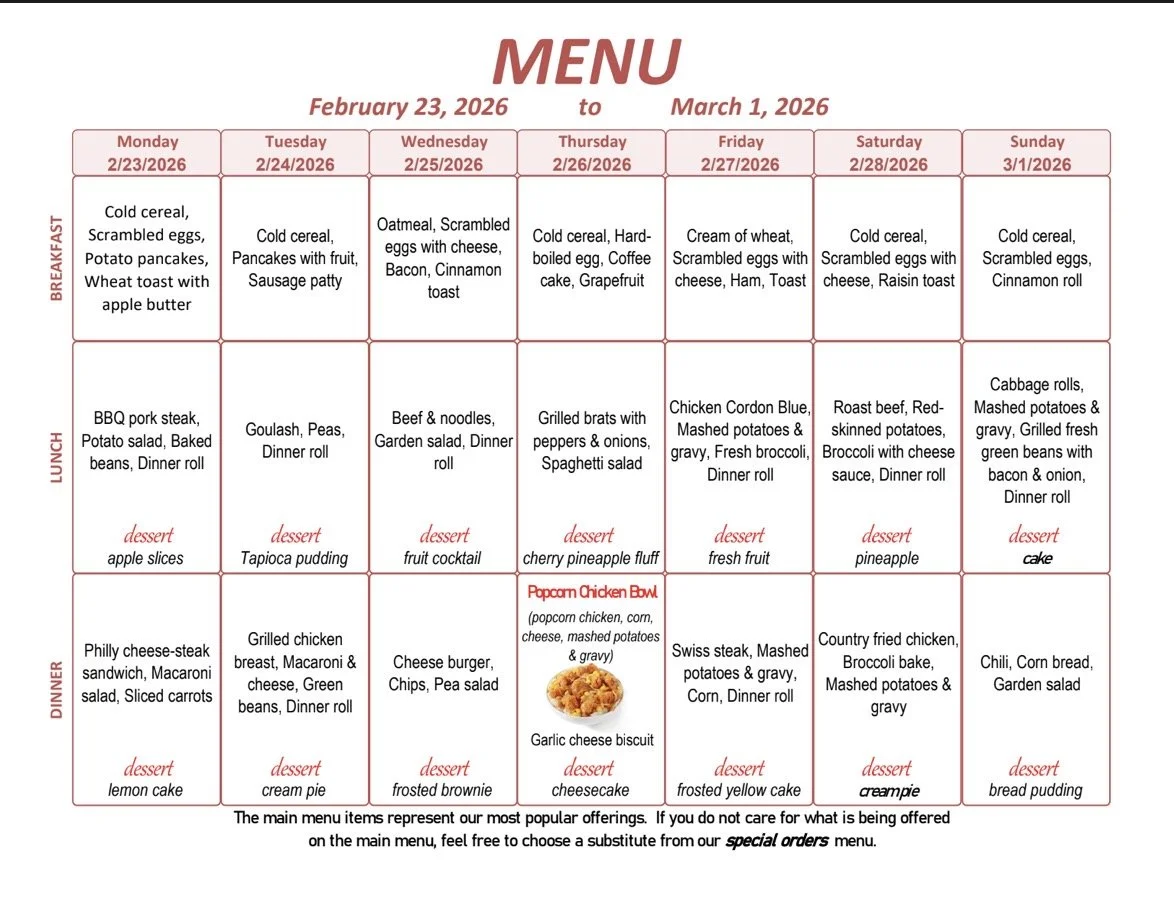JCMCF Adopts the IDDSI Framework
As many know, due to certain conditions, people can experience difficulty chewing and/or swallowing as they age. Collectively, such challenges are referred to as dysphagia. In the nursing home setting, one of the ways we have always tailored care to Residents’ needs is to modify the texture of foods to make eating easier and safer when living with dysphagia.
Historically, hospitals and nursing homes did their best to develop and name different diet-textures which could vary some between different facilities and regions. So in effort to standardize the methods and terminology for these diets across all care settings worldwide, the International Dysphagia Diet Standardization Initiative (IDDSI) was convened (visit iddsi.org for more info).
Now, IDDSI makes it possible for everyone to speak the same “food safety language.”
This month JCMCF will officially adopt the IDDSI framework for the different diet levels we provide.
For most Residents there will be few if any changes. For some however, the conversion will be more evident; most notably for those currently following a soft diet. The soft diet will now be called Soft and Bite-Sized (IDDSI level 6). For the Soft and Bite-Sized diet, IDDSI recommends avoiding most bread-type items, most fried foods and a few others. Here’s why:
Bread-type foods are often challenging for people with dysphagia. Bread doesn’t break down easily when chewed and can form a sticky, doughy mass that can pose a risk.
Fried foods: Deep-frying often produces a crust or breading that’s hard, sharp, or dry. Frying also removes moisture, and dry foods can be hard to chew and swallow safely. Fried foods often fail IDDSI’s “fork pressure test” — the food should squash easily when pressed with a fork without crumbling into hard fragments.
Other foods: Some foods in their usual state that are difficult to chew and swallow cannot be easily modified to make them safe (like corn kernels and bacon).
Our team is dedicated to making this transition as smooth as possible. We have provided staff training on the new diets and terminology and we will work to individualize each Resident’s diet order. Our commitment is and always will be to employ the most current standards of care while honoring the individual needs and desires of Residents.

